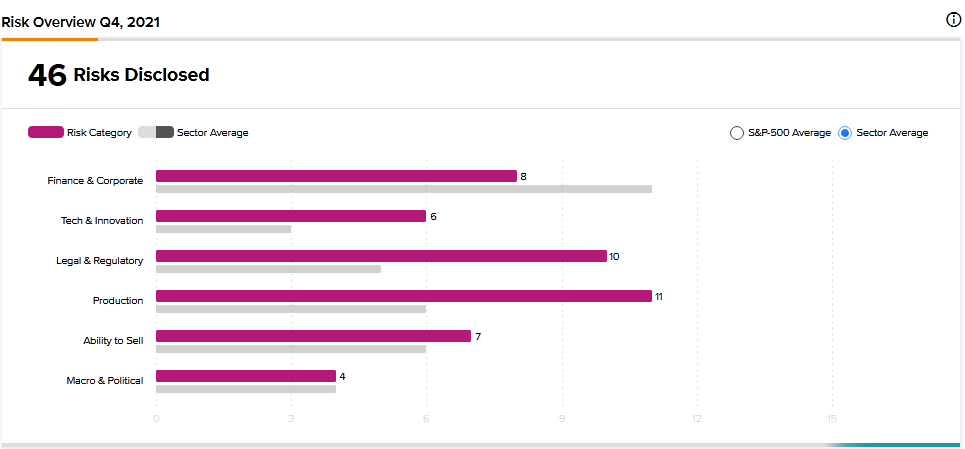Coca-Cola Company (KO) is an American multinational beverage company. It is the maker of Coke, Fanta, and Sprite soda brands. Headquartered in Atlanta, the company was founded in 1886.
Claim 50% Off TipRanks Premium
- Unlock hedge fund-level data and powerful investing tools for smarter, sharper decisions
- Stay ahead of the market with the latest news and analysis and maximize your portfolio's potential
For Q4 2021, Coca-Cola reported a 10% year-over-year rise in revenue to $9.5 billion and surpassed the consensus estimate of $8.95 billion. It posted adjusted EPS of $0.45, which declined 5% from the same quarter the previous year but still beat the consensus estimate of $0.41.
The company has announced a $500 million share repurchase plan for 2022, though it says that the ultimate amount of the buyback program and its timing are subject to various factors.
Coca-Cola plans to distribute a quarterly dividend of $0.44 per share on April to shareholders of record on March 14. The stock currently offers a dividend yield of 2.71%, compared to the sector average of 1.5%.
With this in mind, we used TipRanks to take a look at the newly added risk factors for Coca-Cola.
Risk Factors
According to the new TipRanks Risk Factors tool, Coca-Cola’s main risk category is Production, with 11 out of the total 46 risks identified for the stock. Legal and Regulatory and Finance and Corporate are the next two major risk categories with 10 and 8 risks, respectively. Coca-Cola has recently updated its profile with four new risk factors.
The company informs investors that as part of its strategic initiatives, it continues to seek franchising and divestiture opportunities. But it cautions that franchising activities demand great attention and effort and may distract senior management. Additionally, the company cautions that its business and financial condition may be adversely impacted if divestitures fail to generate the anticipated cost-saving benefits.
Coca-Cola explains that improved productivity is important to its long-term objectives. As a result, the company continues to seek the most effective and efficient business model. But it cautions that actions it may take toward that goal could adversely impact employee morale, distract managers, and weaken internal control structures. Moreover, such actions may lead to negative publicity that could damage the company’s reputation.
The company tells investors that stakeholders are increasingly focusing on corporate environmental, social, and governance (ESG) practices. While Coca-Cola has set certain ESG targets, it cautions that its ability to achieve those goals depends on factors outside its control. Therefore, it warns that it may be exposed to reputational damage and lawsuits if its ESG activities fall short of expectations. Moreover, failure to meet ESG targets could affect Coca-Cola’s ability to sell its products and cause some investors to reconsider their investment in the company.
Finally, Coca-Cola informs investors that it has continued to experience cost pressures. It mentions rising costs of raw materials, labor, and other production inputs. The company cautions that its attempts to offset the cost increases by raising the prices of its products may not be successful. For example, higher prices may cause customers to stop purchasing some products, and if it is unable to offset the higher costs, its operating results and financial condition may be harmed.
Coca-Cola stock has gained about 30% over the past 12 months.

Analysts’ Take
Evercore ISI analyst Robert Ottenstein recently reiterated a Buy rating on Coca-Cola stock and raised the price target to $70 from $63. Ottenstein’s new price target suggests 13.65% upside potential. The analyst noted that Coca-Cola has continued to improve its business model and portfolio.
Consensus among analysts is a Moderate Buy based on 11 Buys and 4 Holds. The average Coca-Cola price target of $67.20 implies 9.11% upside potential to current levels.

Download the TipRanks mobile app now.
To find good ideas for stocks trading at attractive valuations, visit TipRanks’ Best Stocks to Buy, a newly launched tool that unites all of TipRanks’ equity insights.
Read full Disclaimer & Disclosure
Related News:
SNC-Lavalin Enters Strategic Partnership with MBC Group
Scotiabank Launches Mentorship Program for Women Entrepreneurs
Bausch Health Swings to Profit in Q4
















